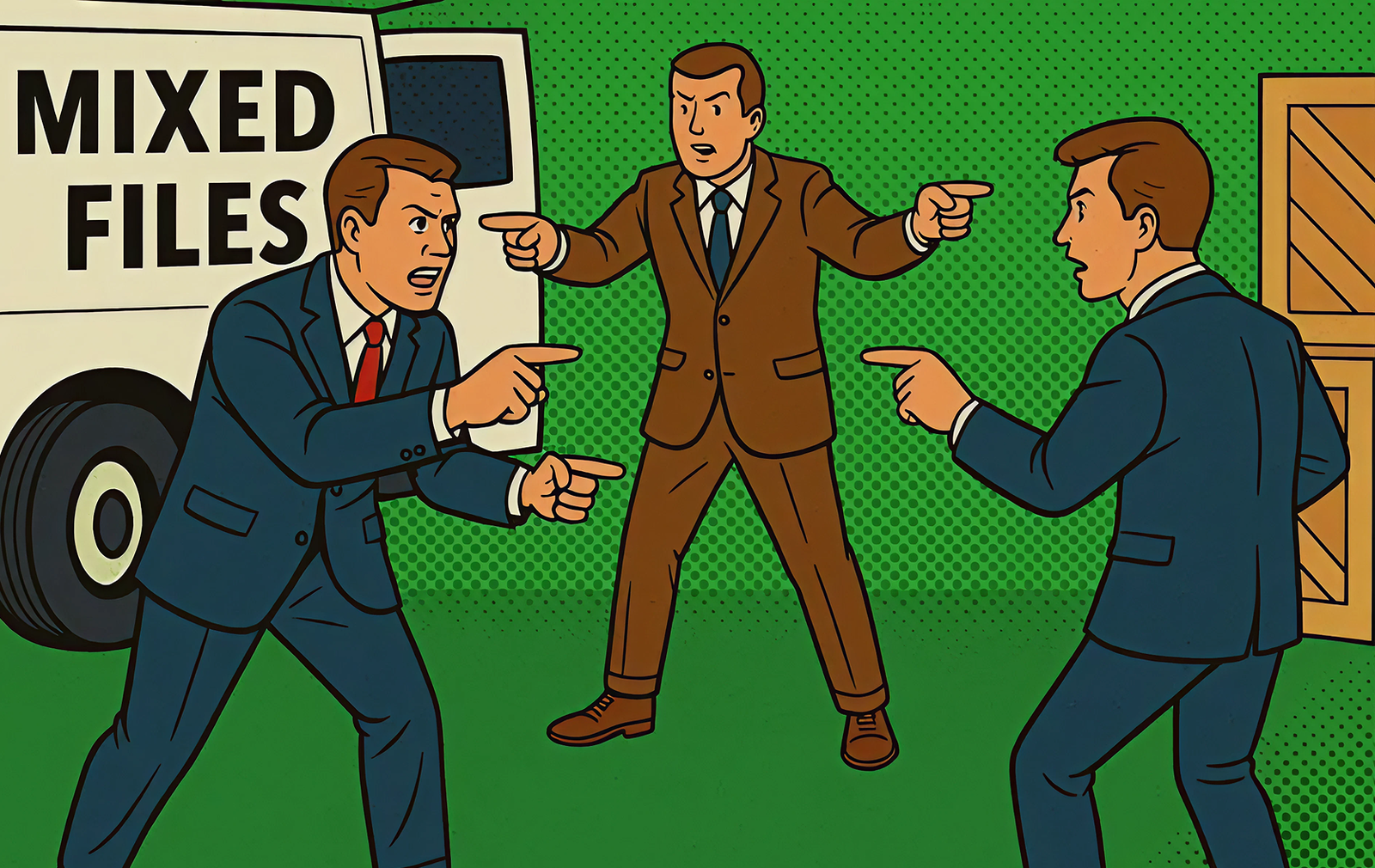Mixed Credit File: How Someone Else’s Mistakes Can Damage Your Life
- Our Practice Areas
- Credit Reporting Errors
Mixed Identity

Mixed Credit File: When Someone Else's Credit Damages Your Life
Mixed identity errors - also known as "mixed files" - occur when a consumer's credit report contains information belonging to someone else. These errors can result in credit reports showing unpaid debts, bankruptcies, or unfamiliar addresses, even when the consumer has no connection to these records. For thousands of Americans each year, mixed identity errors cause financial hardship, job loss, and personal stress.
Mixed file errors are disturbingly common. A 2012 study by the Federal Trade Commission found that about 1 in 4 consumers identified inaccuracies in their credit reports, and while not all were mixed files, a significant portion involved mistaken identity. In 2023 alone, the Consumer Financial Protection Bureau (CFPB) reported that mixed file complaints made up approximately 15% of all credit reporting complaints received.
Certain populations are disproportionately affected. Individuals with common last names like "Smith" or "Garcia," those from large families sharing addresses, and Hispanic and Black consumers are at higher risk due to systemic flaws in credit reporting matching algorithms.
A mixed file error can turn your life upside down without warning. It doesn't matter how careful you’ve been with your own finances - someone else's mistakes, debts, or legal issues can suddenly become attached to your name. When that happens, you may find yourself unfairly denied loans, housing, employment opportunities, or facing higher costs for basic services like insurance. The damage to your financial standing and peace of mind can be swift, serious, and deeply unfair.
At Consumer Attorneys, we specialize in helping individuals reclaim their credit profiles and their financial lives after a mixed identity error threatens their future.
What Is a Mixed Identity Error?
A mixed identity error occurs when the credit information of two or more people becomes incorrectly combined into a single credit file. This mistake usually happens because individuals share similar personal information, such as:
- Similar or identical names
- Close or overlapping addresses
- Transposed Social Security numbers
- Shared birthdates
Credit reporting agencies like Experian, Equifax, and TransUnion use complex matching algorithms to compile credit reports, but these systems are not foolproof. When personal data overlaps or is incorrectly recorded, your file may become contaminated with someone else's financial history.
Real-World Example of Mixed Identity Error
Career Opportunity Lost
Michael, a software engineer from New Jersey, discovered a bankruptcy on his credit report when applying for a senior management position. The bankruptcy actually belonged to another "Michael Johnson" who lived two towns over. Despite submitting dispute letters and evidence, Michael’s credit report remained tainted for months, costing him a six-figure job offer that required a clean financial background check.
Why Mixed Files Are So Dangerous
Mixed files are alarmingly common and carry heavy consequences. In 2023, the Consumer Financial Protection Bureau reported that mixed file complaints made up roughly 15% of all credit reporting complaints. Research also shows that a credit score drop of just 100 points — easily caused by someone else’s debt showing up in your file — can increase mortgage rates by over 1.5%, translating into tens of thousands of dollars in additional costs over a loan’s lifetime. Beyond financial damage, certain groups like people with common surnames and minority consumers are disproportionately affected, compounding existing barriers to housing, employment, and fair lending. These aren’t just clerical slip-ups — they’re high-stakes errors that can derail people’s lives. Other FCRA violations include inaccurate balances or duplicate debts — see examples here.
- Financial Harm: Mixed files can destroy your credit score, making loans, mortgages, and even insurance unaffordable or inaccessible.
- Employment Barriers: Many employers conduct credit checks, especially for jobs involving financial responsibility or security clearances.
- Housing Insecurity: Landlords often screen tenant credit reports, and errors can cause rental applications to be denied.
- Emotional Distress: Dealing with wrongful debt and identity confusion can cause significant anxiety, frustration, and damage to your reputation.
Why Disputing Alone Often Fails
While the Fair Credit Reporting Act gives consumers the right to dispute inaccurate information, the process is often stacked against them. Studies show that credit bureaus resolve over 75% of disputes using automated systems, frequently without a meaningful human review. These systems rely heavily on data furnishers — like banks or lenders — to “verify” the disputed information, which often leads to the same incorrect data being confirmed and left on the report. According to a CFPB report, consumers frequently face closed disputes marked “verified as accurate,” even when presenting clear evidence of a mixed file. As a result, many people get stuck in frustrating cycles of dispute, denial, and re-dispute, all while the harmful information remains on their record. Without legal pressure or the threat of litigation, credit bureaus have little incentive to perform the deep investigation mixed file errors require.
Mixed file disputes are notoriously complex. Consumers often face:
- Automated "investigations" that fail to resolve the root problem.
- Credit bureaus "verifying" wrong information without separating the mixed data.
- Frustrating cycles of disputes being closed without corrections.
Without legal intervention, many consumers find themselves trapped in a loop where errors persist despite repeated efforts.
Your Rights Under the Fair Credit Reporting Act (FCRA)
The FCRA guarantees your right to an accurate credit report and imposes duties on credit bureaus and furnishers to investigate and correct mixed file errors. If they fail to act properly, you may be entitled to:
- Actual damages for financial and emotional harm
- Statutory damages
- Punitive damages
- Attorney's fees and costs
Moreover, legal pressure often compels faster and more thorough corrections than consumer disputes alone.
How Consumer Attorneys PLLC Can Help
Correcting a mixed file error requires precision, persistence, and legal expertise. At Consumer Attorneys, we:
- Conduct Detailed File Reviews: We obtain your full credit files from all three major bureaus to identify the scope of the problem.
- Prepare Comprehensive Disputes: We present detailed evidence challenging the mixed information.
- Pursue Litigation if Necessary: When credit bureaus fail to act, we aggressively pursue lawsuits to enforce your rights and seek compensation.
We operate under fee-shifting provisions, meaning we aim to recover our legal fees from the credit bureaus and furnishers - not from your pocket.
Mixed identity errors can feel overwhelming, but you don’t have to fight alone. Contact Consumer Attorneys today for a free consultation. Let us help you separate your identity, restore your credit, and reclaim your financial future.
Frequently Asked Questions
A mixed credit file occurs when information from another person’s credit history is mistakenly combined with yours on your credit report. This can result in unfamiliar debts, bankruptcies, or addresses showing up under your name, often causing serious financial and personal harm.
Yes, you can sue the credit bureaus if they mix your credit file with someone else's and fail to correct the error after you dispute it. Under the FCRA, you have the right to seek compensation for financial losses, emotional distress, and any damage to your reputation caused by mixed identity errors.
If you win a lawsuit against a credit reporting agency, you may be entitled to actual damages for financial and emotional harm, statutory damages, punitive damages if their conduct was willful, and reimbursement of your attorney’s fees and legal costs.
The investigation process is straightforward. We identify all incorrect accounts, criminal records, public records, and other wrong information on your reports. We contact the banks and courts involved to verify the errors by comparing your full name, full Social Security number, date of birth, and other details. Once we confirm that the reporting agency made a mistake, we prepare and file a federal lawsuit to hold them accountable.
If your credit reports are mixed, another person may see some of your information, like your name, last four digits of your Social Security number, and addresses. However, this limited information is usually not enough to commit fraud or steal your identity. In many cases, the other person is an honest, law-abiding consumer - sometimes even a family member - with no intention to misuse your information.
Related Articles
R
ONGS™You pay nothing. The law makes them pay.















